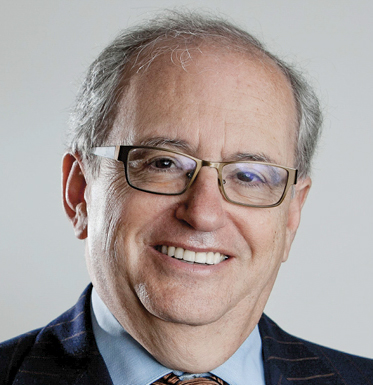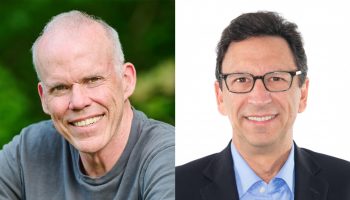
Kaitlyn Finchler
Staff writer
To build a society with a strong center, as Norman Ornstein sees it, Americans need to consider inequality in all sectors, rather than jumping to a willingness for violence when they feel their way of life is threatened.
Ornstein, senior fellow emeritus at the American Enterprise Institute, will continue the conversion begun by Bill Kristol and Angela Garbes for Week Three of the Chautauqua Lecture Series, “Can the Center Hold? — A Question for Our Moment.”
A frequent Chautauqua Lecture Series and Everett Jewish Life Center contributor, Ornstein will deliver his lecture at 10:45 a.m. today in the Amphitheater, replacing Citizen University co-founder Eric Liu, who was unable to attend.
“I’m going to go through some of the deeper causes of political dysfunction and societal division we have at the moment that go beyond the political polarization and tribalism,” Ornstein said. “I’ll talk about the historical structural issues that we have that go beyond the current situation that would be there if Donald Trump had never been around.”
Agreeing with Kristol’s sentiments in Monday’s lecture, Ornstein said “horrible” things can happen and the country is at an “existential moment” when solutions are needed to ameliorate these problems.
The United States has become a “modern society that creates situations where voting doesn’t reflect what people are voting for,” he said, which reinforces that the country “is a republic, not a democracy.”
“We’re going to see that expand more and more over the next decade,” Ornstein said. “Even if we didn’t have some of the cultural dysfunction that we have right now, we would have a crisis of legitimacy in the political system.”
The problem at this point, he said, is a cultural one where “two different societies” have two different sets of facts, priorities and “a belief that the other side is evil.”
“That has to be dealt with, but it’s really hard to do,” Ornstein said. “You have to start with some structural reforms and then … deal with the problems of income and wealth inequality that could create at least a little bit of a better balance.”
There is “some reason for hopefulness,” Ornstein said, with people on both sides of the political divide who “don’t want to see this society collapse into a civil war.”
An “overwhelming” majority of people agree on similar issues across the political spectrum, Ornstien said in regard to Garbes’ Tuesday lecture, and they agree on another problem to work on solving.
There cannot be a strong and successful political center without “significant political reform,” he said. Whenever people try to move toward this goal, Ornstein said there’s “enormous, centrifugal forces” that pull them apart.
As an expert who writes about Congress, and who has many friends in Congress, Ornstein has had to contemplate whether or not he would “call them out” in his columns.
“So much of the problem we have with modern-day journalism is both sides,” he said. “You’re going to be very reluctant to call out one side, even if they are the root of the problem, without trying to show balance.”
Since he’s immersed in the political system, Ornstein said it’s easier to “take a step back and see what it takes to make something work or not.” He was heavily involved in the Bipartisan Campaign Reform Act with former U.S. senators John McCain and Russ Feingold.
“What we realized is that the original McCain-Feingold Bill … didn’t have a chance of being implemented into law,” Ornstein said. “My little group put together a package which we called ‘Five Ideas for Campaign Reform.’ ”
Ornstein then went to McCain and had to tell him his “signature bill” wasn’t going to work.
“I was afraid he’d throw me out of the office,” Ornstein said. “But he said to me, ‘OK, I don’t want just an issue. I want a law. What do we do?’ ”
He then worked with both McCain and Feingold to add elements into the bill to be more “practical,” with a greater likelihood of passing “court muster.”
Back when the Supreme Court was “fairly reasonable,” Ornstein said citizens “blew up” over the bill in a targeted and “miraculous” way.
While working at AEI, Ornstein said he had “complete freedom” to do and say what he wanted.
“I’m sure I gave (AEI) a lot of heartburn,” he said. “But I was able to still do what I thought was right.”




